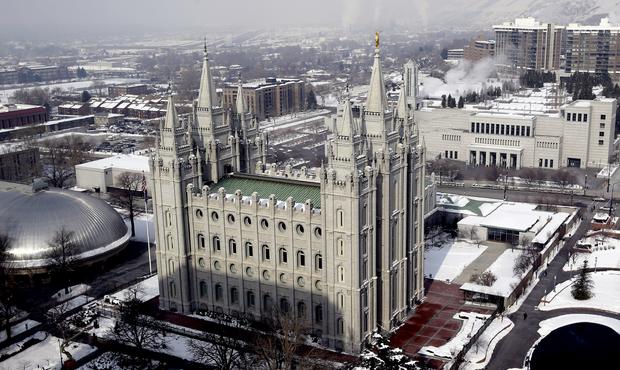Increasing number of Mormons support same-sex marriage
SALT LAKE CITY - Court decisions this week paving the way for same-sex marriage to become legal in dozens of states, including Mormon strongholds like Utah, Idaho and Nevada, have emboldened a growing group of Latter-day Saints who are pushing the conservative church to become more accepting of gay members.
The church's stance toward gays has softened considerably since it was one of the leading forces behind California's ban on same-sex marriage in 2008, but high-ranking leaders have reiterated time and again the faith's opposition to same-sex unions.
Some Mormons hope to change that, or at least work to make congregations more welcoming places for gays and lesbians.
Erika Munson, co-founder of a group pushing the faith to be more accepting of gays, said she worries about losing younger Mormons because of the church's stance. One of her five children, an adult son, has chosen to not to practice Mormonism, in part because of the religion's stance on homosexuality.
"People under 30 all know somebody who has come out. They are not the other, they are not scary. They understand that they are just like them," said Munson, whose group Mormons Building Bridges stays neutral on same-sex marriage because they want to work within church doctrine. "So, that's really hard to reconcile with a Christian church where we follow the teachings of Jesus."
On Monday - after the U.S. Supreme Court unexpectedly rejected appeals by Utah and four other states trying to protect their same-sex marriage bans - The Church of Jesus Christ of Latter-day Saints said in a statement that the decision will have no effect on church doctrine or practices, while acknowledging that "as far as the civil law is concerned, the courts have spoken."
Still, church leaders are not ready to accept gay unions. Dallin H. Oaks, one of the church's highest-ranking leaders, told a worldwide audience last week at a Mormon conference in Salt Lake City that legalizing same-sex marriage is among the world values threatening Mormon beliefs.
Yet he also urged members to be gracious toward those who believe differently in what many gay advocates in the church saw as the latest example of the softer tone leaders are taking.
The majority of Mormons will stand behind church teachings on the topic, said Scott Gordon, president of a volunteer organization that supports the church.
That doesn't mean they are bigots or hatemongers, though, as they are sometimes labeled, he said.
The reality is that most Mormons have gay relatives or friends they love, but they also agree with the religion's opposition to same-sex marriage rooted in a deeply-held belief that families are the center of life and for eternity, and that a family led by a man and a woman is best for children, he said.
"Marriage is not just about love. Yes, love is a large component of it, but marriage is about having families and raising children and doing those things that will help the children grow into adulthood," said Gordon, of FairMormon. "The fundamental teachings of the church are never going to change on this. We'll just adapt and move on."
The history of the church suggests Mormons could alter their views, although no one is expecting doctrinal change anytime soon.
Mormons believe in ongoing revelations from God, which has led to fundamental changes. In 1978, Mormon church leaders lifted the ban on blacks in the priesthood. In 1890, the church president at the time received a revelation to end the practice of polygamous marriages that were part of the first 60 years of the church.
"They have change built into their cosmos," said Sarah Barringer Gordon, a history professor at the University of Pennsylvania. "Churches exist in societies as well and that can't help but effect how they think."
Spencer W. Clark said his beliefs began shifting when he became friends with gay and lesbian classmates in high school and college, and he eventually became the leader of a group of faithful Mormons that supports same-sex marriage.
He, Munson and others hope that same-sex couples will become visible, active members of their communities, allowing more Mormons to get to know and appreciate families led by gay and lesbian couples. Even if Latter-day Saints don't accept same-sex marriage right away, that could help break down barriers, Clark said.
"This helps people be more comfortable with it because it's no longer the big, scary unknown," said Clark, executive director of Mormons for Equality, who lives in Washington D.C. with his wife and three children. "They'll find out this isn't the doomsday scenario."
